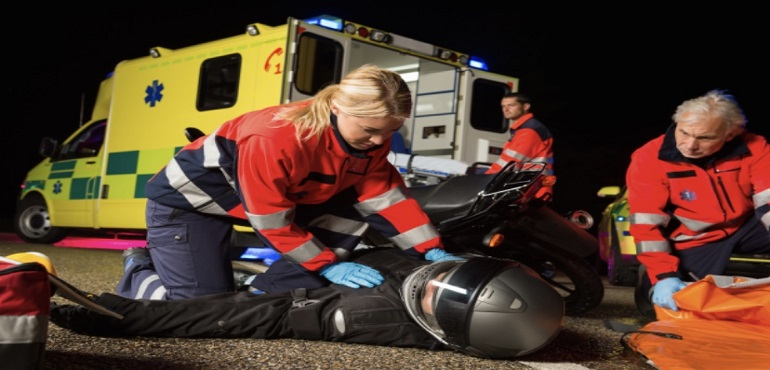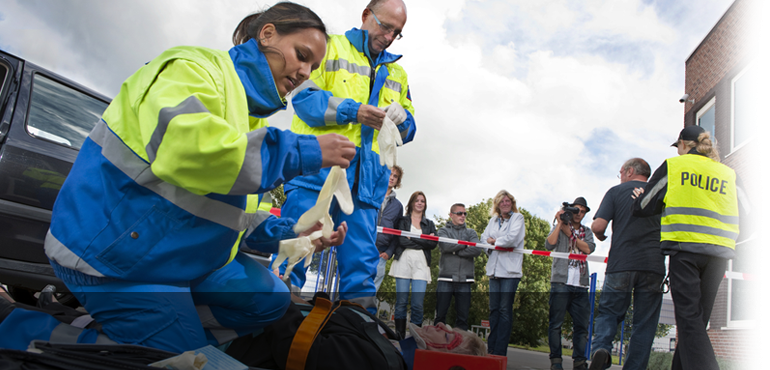| Toll Free : 1844 495 7333(injury hotline- new cases only) | |
| Text a Personal Injury Lawyer 24/7 and get instant help.TM (416 931 5015) | |
| Head Office : 905 495 7333 |
ATV Accidents: An Overview
October 29, 2015All Terrain Vehicles (ATVs) are an exciting and fun way of traveling through different areas of the country, unhampered by concerns about off-roading, bad roads etc. They’re also known as quad bikes, quads, three or four wheelers and are extremely popular among people who enjoy challenging experiences. They’ve gained a lot of popularity with first-time users and experienced riders, who have their own sporting events, clubs and groups of like-minded people.
ATVs are usually small single-driver or dual-driver vehicles, meant for recreational use in areas which have no roads, dirt tracks, mountainous territory, marshy areas etc. Originally built with three wheels, today’s ATV usually has four wheels. The large-sized tires are kept under low pressure to traverse different terrains. They have very deep tread/grooves designed to travel comfortably across muddy and rocky areas. The rider is usually seated above the engine though some ATVs have side-seating.
Though theoretically more safe than motorcycles because of their four wheel stability, ATVs are not street-legal in many countries. They’re prone to roll-over accidents, rendering them more dangerous than four-wheelers, since ATVs don’t offer that level of protection.
ATV Accident Injuries
ATV accidents account for a huge percentage of patients who visit ER rooms across the country. Fatal injuries can result in death, while serious trauma to the head, neck, spine, limbs, internal organs and skin can take place in ATV accidents.
Common injuries include:
- Whiplash
- Neck and spine dislocation
- Head and face trauma
- Burns
- Abrasion
- Concussion
- Fractures
- Bruising
- Lacerations
- Brain trauma
- Internal bleeding
- Organ damage
Preventing ATV Injuries
Get to know your vehicle before taking it out. Many accidents are caused by inexperienced drivers who are not familiar with how to handle the vehicle. Most manufacturers offer ATV education and riding classes in which they make the drivers aware of the risks and proper handling of the vehicle.
Rider inexperience is a leading cause of accidents and a new rider should initially learn the ropes under the guidance of more experienced riders.
ATVs perform poorly on paved roads, as they’re meant for rough terrain. Never take your bike out on city streets. Most ATVs are designed for single riders and double-riding on a vehicle not meant for two is risky.
Television and films often depict exciting sequences involving ATVs. This may spur inexperienced riders to try the same stunts without realizing that it takes long hours to practice to perform them. Dangerous stunts and maneuvers are meant to be performed by experts and not a newbie who has just got the bike.
State laws and ordinances mandate what kind of terrain is designated for use by ATV riders. Knowing local conditions, geographical and climatic conditions and riding in a controlled environment can mitigate risks. Operating the vehicle in unfamiliar regions, poor light and in bad weather is certainly asking for trouble, however experienced a rider one is.
Lending one’s ATV to an inexperienced rider can lead to fatal accidents for which one becomes liable. ATVs are typically considered as “toys” or leisure vehicles operated by young adults who may lack physical, intellectual and emotional maturity to operate them. They may not always respect property rights, road signs and warnings. Children under 14 should never operate an ATV, though in reality they can and often do. Some manufacturers offer a “transitional vehicle” for this age group which puts them at risk if operated without proper education and supervision. Many ATV deaths and injuries occur during the summer and in the school holidays. Children should never ride vehicles not meant for their height, weight and size.
Protective gear like helmets, goggles, gloves, knee and ankle pads should be compulsorily worn while riding.
Another leading cause of ATV accidents is unscientific modifications to the vehicle by amateurs.
How We Can Assist
If you or a loved one is involved in an ATV accident, immediate medical attention is the first priority. You also need proper legal representation as quickly as possible to safeguard your rights. In such cases, our personal injury lawyers can conduct their own investigations, gather testimony from experts and witnesses and put documentary/photographic evidence together to make a strong claim for compensation.
Our free consultation injury lawyer can give you a genuine assessment of your claim. In case of death, our wrongful death attorney can help you with the paperwork. We can provide the services of a no win no fee lawyer and ensure that your rights are protected and you receive maximum compensation.
If you, your family or a friend has been injured in an accident, please feel free to speak to one of our injury lawyers for a free consultation about how we are able to assist in making a personal injury claim. We consult in all cities across Ontario with a no win no fee guarantee. Our personal injury lawyers have helped victims secure millions of dollars in personal injury cases. Call us Toll Free On our 24/7 Injury Hotline: 1 – 844 495 7333.
ATV Accidents: An Overview
October 29, 2015All Terrain Vehicles (ATVs) are an exciting and fun way of traveling through different areas of the country, unhampered by concerns about off-roading, bad roads etc. They’re also known as quad bikes, quads, three or four wheelers and are extremely popular among people who enjoy challenging experiences. They’ve gained a lot of popularity with first-time users and experienced riders, who have their own sporting events, clubs and groups of like-minded people.
ATVs are usually small single-driver or dual-driver vehicles, meant for recreational use in areas which have no roads, dirt tracks, mountainous territory, marshy areas etc. Originally built with three wheels, today’s ATV usually has four wheels. The large-sized tires are kept under low pressure to traverse different terrains. They have very deep tread/grooves designed to travel comfortably across muddy and rocky areas. The rider is usually seated above the engine though some ATVs have side-seating.
Though theoretically more safe than motorcycles because of their four wheel stability, ATVs are not street-legal in many countries. They’re prone to roll-over accidents, rendering them more dangerous than four-wheelers, since ATVs don’t offer that level of protection.
ATV Accident Injuries
ATV accidents account for a huge percentage of patients who visit ER rooms across the country. Fatal injuries can result in death, while serious trauma to the head, neck, spine, limbs, internal organs and skin can take place in ATV accidents.
Common injuries include:
- Whiplash
- Neck and spine dislocation
- Head and face trauma
- Burns
- Abrasion
- Concussion
- Fractures
- Bruising
- Lacerations
- Brain trauma
- Internal bleeding
- Organ damage
Preventing ATV Injuries
Get to know your vehicle before taking it out. Many accidents are caused by inexperienced drivers who are not familiar with how to handle the vehicle. Most manufacturers offer ATV education and riding classes in which they make the drivers aware of the risks and proper handling of the vehicle.
Rider inexperience is a leading cause of accidents and a new rider should initially learn the ropes under the guidance of more experienced riders.
ATVs perform poorly on paved roads, as they’re meant for rough terrain. Never take your bike out on city streets. Most ATVs are designed for single riders and double-riding on a vehicle not meant for two is risky.
Television and films often depict exciting sequences involving ATVs. This may spur inexperienced riders to try the same stunts without realizing that it takes long hours to practice to perform them. Dangerous stunts and maneuvers are meant to be performed by experts and not a newbie who has just got the bike.
State laws and ordinances mandate what kind of terrain is designated for use by ATV riders. Knowing local conditions, geographical and climatic conditions and riding in a controlled environment can mitigate risks. Operating the vehicle in unfamiliar regions, poor light and in bad weather is certainly asking for trouble, however experienced a rider one is.
Lending one’s ATV to an inexperienced rider can lead to fatal accidents for which one becomes liable. ATVs are typically considered as “toys” or leisure vehicles operated by young adults who may lack physical, intellectual and emotional maturity to operate them. They may not always respect property rights, road signs and warnings. Children under 14 should never operate an ATV, though in reality they can and often do. Some manufacturers offer a “transitional vehicle” for this age group which puts them at risk if operated without proper education and supervision. Many ATV deaths and injuries occur during the summer and in the school holidays. Children should never ride vehicles not meant for their height, weight and size.
Protective gear like helmets, goggles, gloves, knee and ankle pads should be compulsorily worn while riding.
Another leading cause of ATV accidents is unscientific modifications to the vehicle by amateurs.
How We Can Assist
If you or a loved one is involved in an ATV accident, immediate medical attention is the first priority. You also need proper legal representation as quickly as possible to safeguard your rights. In such cases, our personal injury lawyers can conduct their own investigations, gather testimony from experts and witnesses and put documentary/photographic evidence together to make a strong claim for compensation.
Our free consultation injury lawyer can give you a genuine assessment of your claim. In case of death, our wrongful death attorney can help you with the paperwork. We can provide the services of a no win no fee lawyer and ensure that your rights are protected and you receive maximum compensation.
If you, your family or a friend has been injured in an accident, please feel free to speak to one of our injury lawyers for a free consultation about how we are able to assist in making a personal injury claim. We consult in all cities across Ontario with a no win no fee guarantee. Our personal injury lawyers have helped victims secure millions of dollars in personal injury cases. Call us Toll Free On our 24/7 Injury Hotline: 1 – 844 495 7333.








